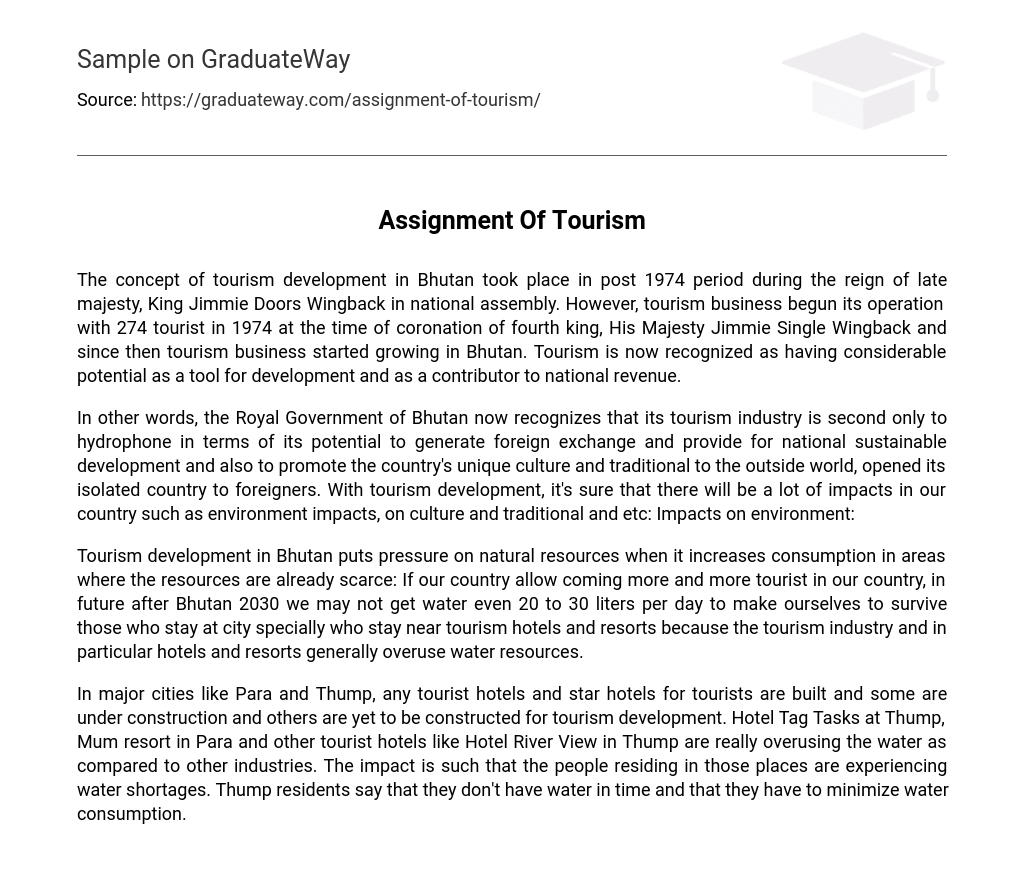The concept of tourism development in Bhutan took place in post 1974 period during the reign of late majesty, King Jimmie Doors Wingback in national assembly. However, tourism business begun its operation with 274 tourist in 1974 at the time of coronation of fourth king, His Majesty Jimmie Single Wingback and since then tourism business started growing in Bhutan. Tourism is now recognized as having considerable potential as a tool for development and as a contributor to national revenue.
In other words, the Royal Government of Bhutan now recognizes that its tourism industry is second only to hydrophone in terms of its potential to generate foreign exchange and provide for national sustainable development and also to promote the country’s unique culture and traditional to the outside world, opened its isolated country to foreigners. With tourism development, it’s sure that there will be a lot of impacts in our country such as environment impacts, on culture and traditional and etc: Impacts on environment:
Tourism development in Bhutan puts pressure on natural resources when it increases consumption in areas where the resources are already scarce: If our country allow coming more and more tourist in our country, in future after Bhutan 2030 we may not get water even 20 to 30 liters per day to make ourselves to survive those who stay at city specially who stay near tourism hotels and resorts because the tourism industry and in particular hotels and resorts generally overuse water resources.
In major cities like Para and Thump, any tourist hotels and star hotels for tourists are built and some are under construction and others are yet to be constructed for tourism development. Hotel Tag Tasks at Thump, Mum resort in Para and other tourist hotels like Hotel River View in Thump are really overusing the water as compared to other industries. The impact is such that the people residing in those places are experiencing water shortages. Thump residents say that they don’t have water in time and that they have to minimize water consumption.





